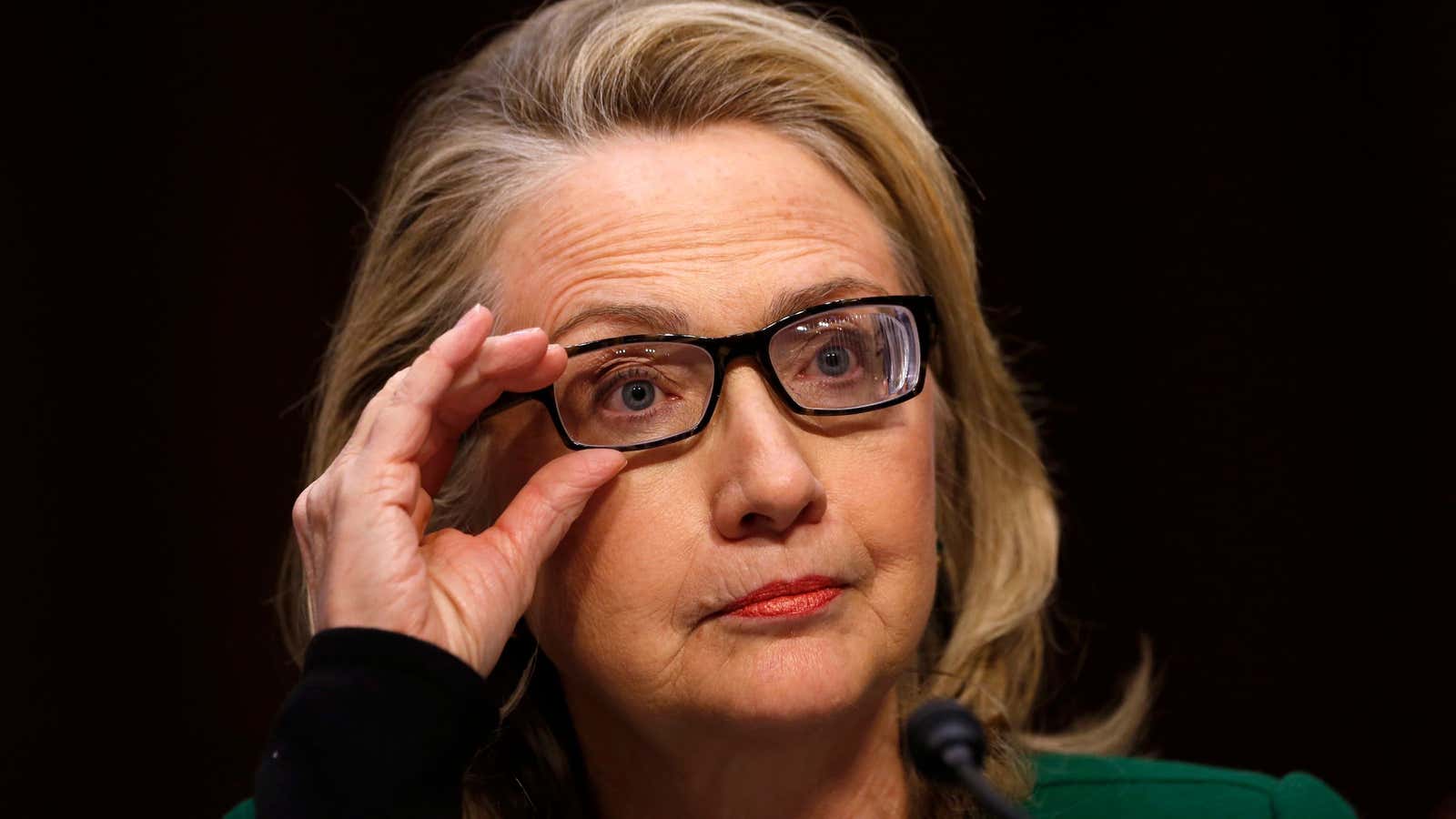Investigations into the deaths of four Americans in Libya haven’t found evidence of the negligence or cover-up alleged by some Republican critics of the Obama administration—but in surfacing apparent transparency violations by then-Secretary of State Hillary Clinton, they have generated the political scandal that Democrats suspected was the true motivation of the relentless scrutiny all along.
Seven completed investigations into attacks on a US diplomatic outpost in Benghazi that killed Ambassador Christopher Stevens, a foreign service officer and two CIA contractors, found no evidence of wrong-doing. These included a two-year effort by the Republican-controlled House Intelligence Committee, which concluded there was no delay in attempting a rescue of the beleaguered Americans.
Nonetheless, an eighth investigation was launched, headed by Republican Representative Trey Gowdy. He was intent on hearing the testimony of Hillary Clinton, who is now preparing a campaign for president in 2016—and is widely considered the Democratic front-runner. After subpoena threats and negotiations, Clinton agreed to testify, and Gowdy requested relevant e-mails about the incident in advance, inadvertently revealing that Clinton did not use an official government e-mail account during her time in the cabinet.
This appears to have violated federal record-keeping rules that require high-ranking official to save all official correspondence for scrutiny by Congress, the public, and the press. It also raises significant concerns about the security of the top US diplomat’s correspondence on commercial servers considered more vulnerable to hackers than encrypted government systems.
While the American public tends to see transparency scandals as less important than blatant wrong-doing—George W. Bush’s White House floated above criticism for similar practices—the practice hints at the paranoia and secrecy many of Clinton’s critics say define her political operation.
It also presents a key contrast with one of her likeliest opponents, former Florida governor Jeb Bush, who released a large trove of e-mails from his time as Florida governor in a transparency push, albeit one that also raised some internet security questions.
